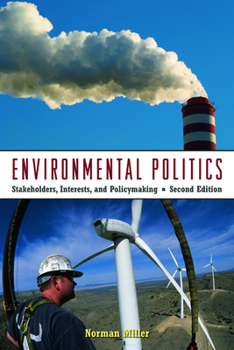Environmental Politics: Stakeholders, Interests, and Policymaking
Select Format
Select Condition 
Book Overview
The second edition of Environmental Politics: Stakeholders, Interests, and Policymaking shows students that environmental politics is fundamentally a clash of competing stakeholders' interests, and environmental policy the result of their reconciliation. But developments in environmental policymaking over the past several years have been little short of earthshaking. The text not only marks changes in the formal lawmaking process itself, but covers recent elements reshaping environmental politics, such as:
the new environmentally activist posture of businessthe dramatic shift of policymaking influence from the federal to state and local levels
the participation of new actors on the environmental policy stage, most notably the faith community
the U-turn of organized labor, from opponent of environmentalists to their collaborator
the consolidation of the varying missions of environmental advocacy groups to fight global warming
the emergence of science from its historic political neutrality to open advocacy
the increasing role of both the media and the judiciary
Written by an expert with more than 25 years of "smoke-filled room" experience in environmental policymaking, Environmental Politics: Stakeholders, Interests, and Policymaking gives students an insider's view of how policies are forged. By examining current environmental issues through a stakeholder lens, this book not only provides a unique perspective into how policies are adopted, but also illuminates the transformative power of global warming as a political force.





